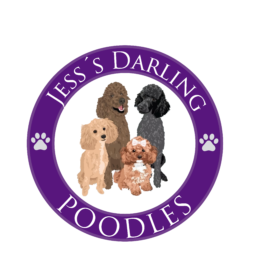THINGS TO BUY/RECOMMENDATIONS
RECOMMENDED DOG FOOD
TASTE OF THE WILD WITH ANCIENT GRAINS
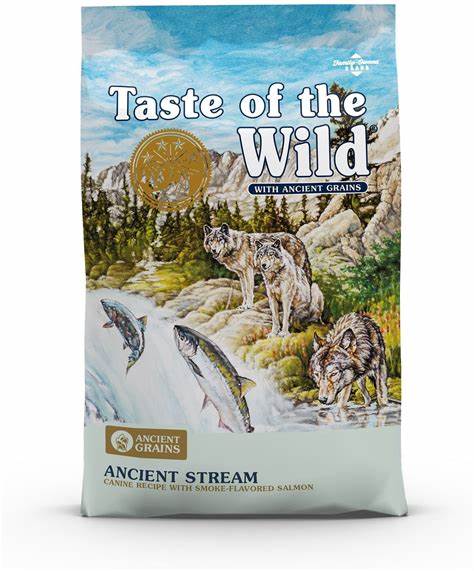
This dog food is a favorite as it is all life stages meaning you never have to change your puppy’s kibble. It is a grain inclusive food that is salmon based which is really good for poodle’s coat. All of our puppies are weaned with this food, and I always send some home as well with your baby. You are more than welcome to change up your puppy’s food, just be sure that it is salmon based as poodles are very prone to chicken and poultry allergies. I’m always available to answer any questions you may have.
RECOMMENDED TREATS
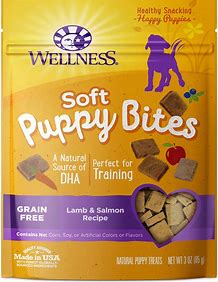
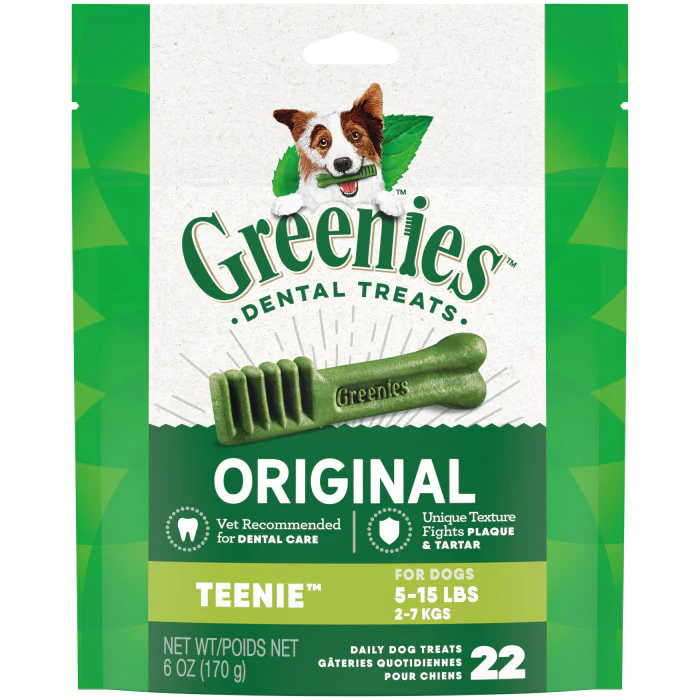
Depending on the size of your pup, you would buy these according to weight. These treats are very good for maintaing teeth clean.
BELOW IS THE LINK TO PURCHASE
Greenies: Pet Dental Treats (Free Shipping) | Chewy
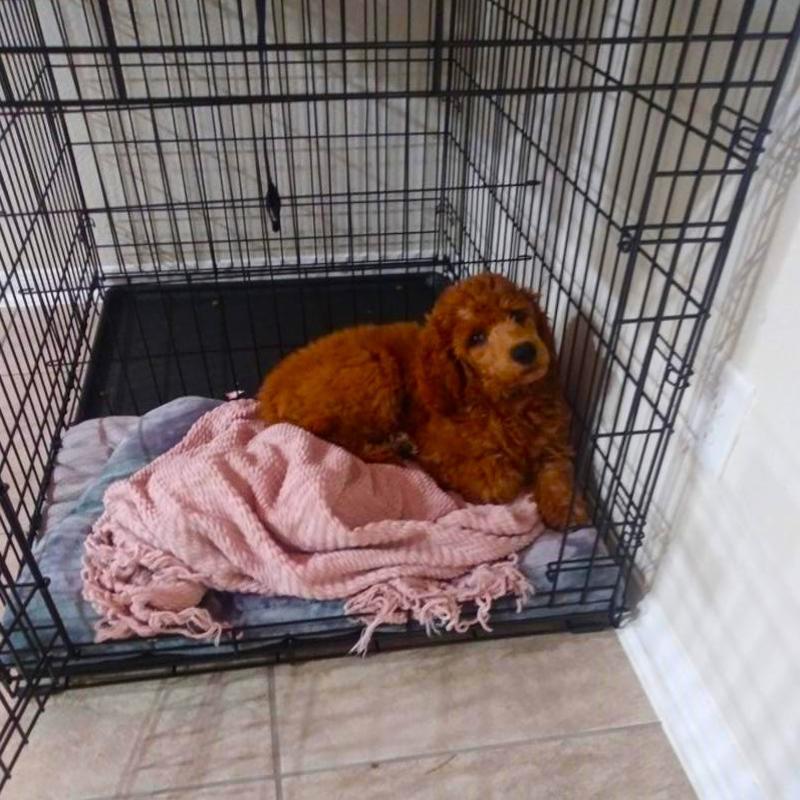
RECOMMENDED CRATE
BELOW WILL BE THE LINK OF THE CRATES TO PURCHASE. I PERSONALLY LIKE THE ONES WITH DIVIDERS AS YOUR PUPPY SLOWLY GROWS, YOU CAN MAKE IT BIGGER
FOR TOYS 18"-24" SIZE
FOR MINIATURES 30"-36" SIZE
PUPPY PLAY PEN

BELOW YOU WILL FIND THE LINK THAT WILL TAKE YOU TO DIFFERENT PUPPY PLAY PENS ON AMAZON. YOU CAN CHOOSE THE ONE THAT BEST SUITS YOU. PLEASE BE SURE TO CHECK SIZE MEANING SMALLER FUR BABY-SMALLER PLAY PEN.
FOOD TOPPERS AND HEALTHY TABLE FOOD SNACKS
Carrots
Carrots are a healthful food for dogs. Chewing on carrots can help remove plaque from their teeth and otherwise promote good dental health.
Carrots are also a good source of vitamin A, which is beneficial for a dog’s immune system, skin, and coat.
Apples
Apples provide many important vitamins for dogs, including vitamins A and C.
Apples are also a good source of fiber, which can help regulate a dog’s digestion. However, eating rotting apples can lead to alcohol poisoning in dogs.
White rice
Cooked, plain white rice can be a good option for a dog with an upset stomach, as it is easy to digest and helps bind stool.
White rice can cause blood sugar levels to rise, however, so dogs with diabetes should only eat it in small amounts.
Dairy products
Dairy products, such as milk, cheese, and plain yogurt, are safe for dogs to have in very small quantities.
Eating too much dairy can cause digestive problems. This is because dogs have low levels of lactase, a digestive enzyme that breaks down the sugars in milk.
Dogs with lactose intolerance should not eat dairy products. Signs of lactose intolerances include diarrhea or vomiting after consuming anything that contains dairy.
Fish
Salmon, shrimp, and tuna are all safe for dogs to eat and good sources of protein.
Salmon and tuna are rich sources of omega-3 fatty acids, which can help keep a dog’s immune system, coat, and skin healthy.
The B vitamins in shrimp can also help maintain a dog’s digestive system and promote healthy blood circulation.
It is important to cook fish before feeding it to a dog, as uncooked fish can contain harmful parasites.
Peanut butter

Unsalted peanut butter with no added sugar or sweeteners is safe for dogs to eat in moderation.
Peanut butter contains many beneficial elements, including vitamins E and B, niacin, healthful fats, and protein.
However, it is vital to check that the peanut butter does not contain a sweetener called xylitol, which is highly toxic to dogs.
Anyone who suspects that their dog has ingested xylitol should immediately contact a veterinarian or call an Animal Poison Control Center.
Plain popcorn
Plain popcorn, without salt, butter, or sugar, can be a nutritional treat for dogs.
Popcorn contains minerals such as magnesium, phosphorus, and zinc, which are all important for keeping dogs healthy.
Make sure dogs do not eat any unpopped popcorn kernels, as this could cause them to choke.
Pork
Unseasoned, cooked pork is safe for dogs to eat.
However, they should only consume small portions of pork, as the high fat content is hard for dogs to digest, and it can cause inflammation and pancreatitis.
Refrain from feeding dogs bacon or processed ham, due to the high salt contents.
Turkey
Cooked turkey is safe for dogs to eat, but it should be plain and unseasoned. Many commercial dog foods contain turkey, as it is a good source of protein.
Before giving cooked turkey to a dog, remove the fat first. Too much fat can cause pancreas issues in dogs.
Blueberries
Blueberries are safe for dogs to eat and a rich source of fiber, antioxidants, and phytochemicals, which can provide a range of health benefits for dogs.
ResearchTrusted Source from 2012 suggests that antioxidants may help improve age-related issues in older dogs.
Bananas
Dogs can eat bananas in moderation. They are full of magnesium, which is important for good bone health.
Due to their high sugar content, bananas should only be an occasional treat for dogs.
Cucumbers
Cucumbers are a safe, low-calorie snack for dogs, and they can be a good option for those who are overweight.
Cucumbers also contain plenty of vitamins and minerals, such as vitamin K.
Green beans
Plain green beans are a good, healthful snack for dogs. They are a source of protein and also contain calcium, iron, and vitamin K.
Dogs can eat green beans cooked or raw. However, avoid seasoning and chop up the beans first to prevent choking.
Watermelon
Watermelon is safe for dogs to eat, but it is important to remove all the seeds first, as these can block the intestines.
Chewing on the rind can also cause an upset stomach, so remove this too before giving the watermelon to a dog.
Watermelon has a high water content, so it can help keep dogs hydrated. It is also a good source of vitamins A, C, and B-6.
FOODS TO AVOID
| Items to Avoid | Reasons to Avoid |
|---|---|
| Alcoholic beverages | Can cause intoxication, seizures, low blood sugar, arrhythmias, coma, and death. |
| Bones from fish, poultry, or other meat sources | Can cause obstruction or laceration of the digestive system. |
| Cat food | Generally too high in protein and fats. |
| Chocolate, coffee, tea, and other caffeine | Contain caffeine, theobromine, or theophylline, which can cause vomiting and diarrhea and be toxic to the heart and nervous systems. |
| Citrus oil extracts | Can cause vomiting. |
| Fat trimmings | Can cause pancreatitis. |
| Fish (raw, canned or cooked) | If fed exclusively or in high amounts can result in a thiamine (a B vitamin) deficiency leading to loss of appetite, seizures, and in severe cases, death. |
| Grapes, raisins and currants | Contain an unknown toxin, which can damage the kidneys. There have been no problems associated with grape seed extract. |
| Hops | Unknown compound causes panting, increased heart rate, elevated temperature, seizures, and death. |
| Human vitamin supplements containing iron | Can damage the lining of the digestive system and be toxic to the other organs including the liver and kidneys. |
| Macadamia nuts | Contain an unknown toxin, which can affect the digestive and nervous systems and muscle. |
| Marijuana | Can depress the nervous system, cause vomiting, and changes in the heart rate. |
| Milk and other dairy products | Some dogs may develop diarrhea if given large amounts of dairy products. |
| Moldy or spoiled food, garbage | Can contain multiple toxins causing vomiting and diarrhea and can also affect other organs. |
| Mushrooms | Can contain toxins, which may affect multiple systems in the body, cause shock, and result in death. |
| Onions and garlic (raw, cooked, or powder) | Contain sulfoxides and disulfides, which can damage red blood cells and cause anemia. |
| Persimmons | Seeds can cause intestinal obstruction and enteritis. |
| Pits from peaches and plums | Can cause obstruction of the digestive tract. |
| Raw eggs | Contain an enzyme called avidin, which decreases the absorption of biotin (a B vitamin). This can lead to skin and hair coat problems as well as neurologic abnormalities. Raw eggs may also contain Salmonella. |
| Raw meat | May contain bacteria such as Salmonella and E. coli, which can cause vomiting and diarrhea. |
| Rhubarb leaves | Contain oxalates, which can affect the digestive, nervous, and urinary systems. |
| Salt | If eaten in large quantities it may lead to electrolyte imbalances, seizures, and even death. |
| String | Can become trapped in the digestive system; called a “linear foreign body.” |
| Sugary foods | Can lead to obesity and dental problems. |
| Table scraps (in large amounts) | Table scraps are not nutritionally balanced. They should never be more than 10% of the diet. Fat should be trimmed from meat; bones should not be fed. |
| Tobacco | Contains nicotine, which affects the digestive and nervous systems. Can result in rapid heart beat, collapse, coma, and death. |
| Yeast dough | Can expand and produce gas in the digestive system, causing pain and possible rupture of the stomach or intestines. |
| Xylitol (artificial sweetener) | Can cause very low blood sugar (hypoglycemia), which can result in vomiting, weakness and collapse. In high doses can cause liver failure and death. |
